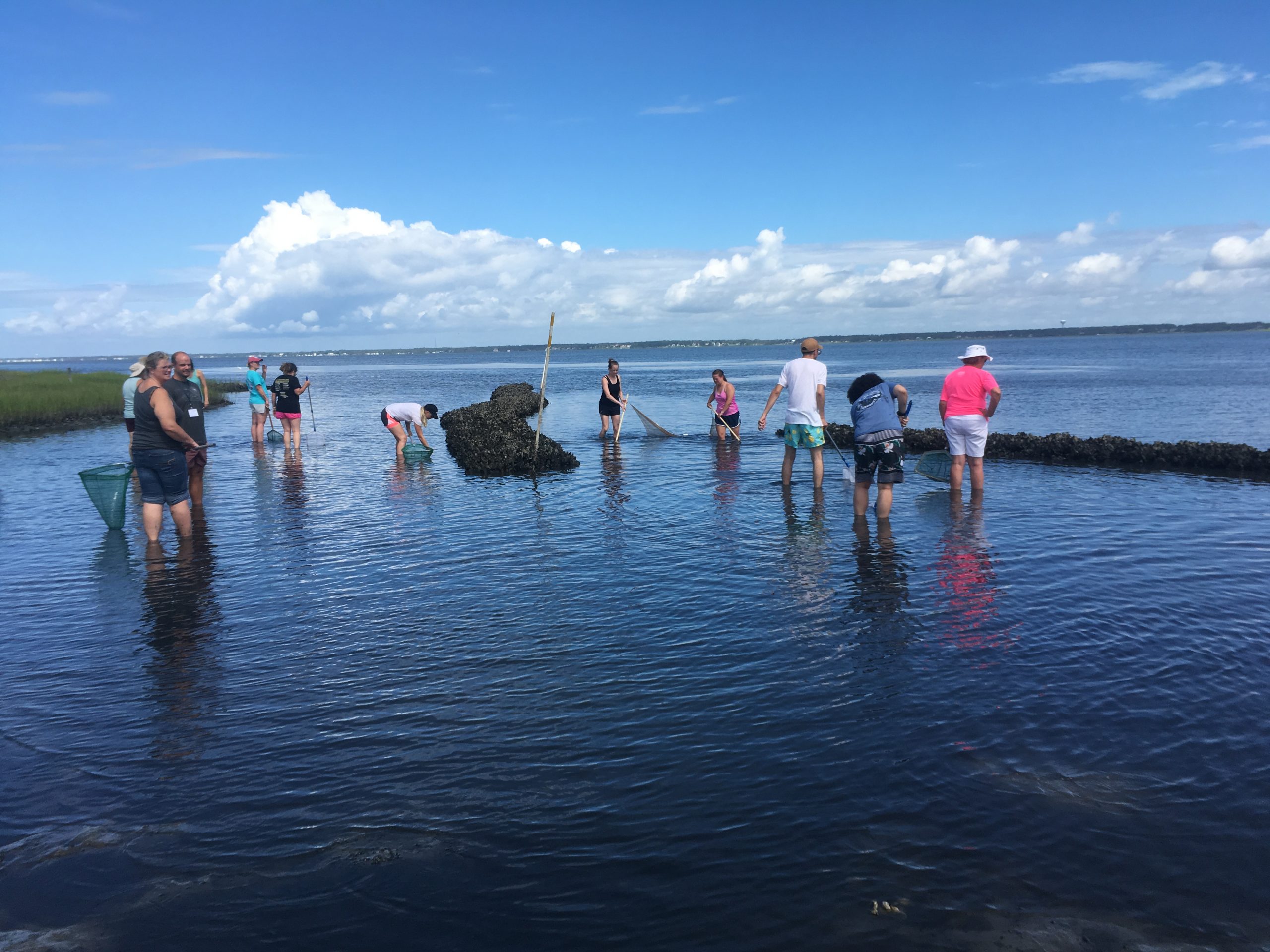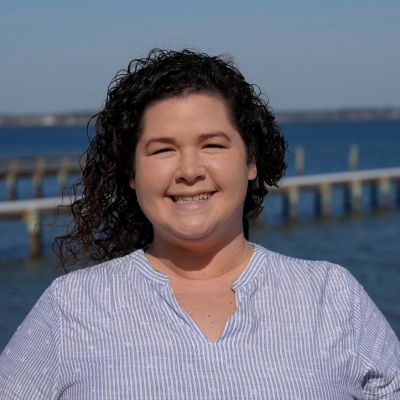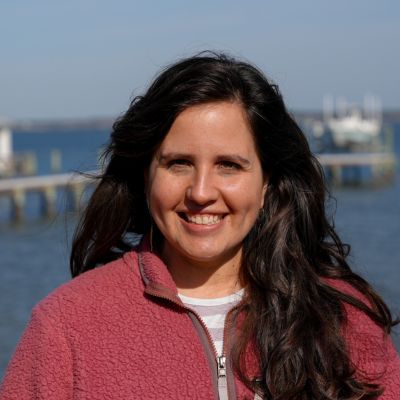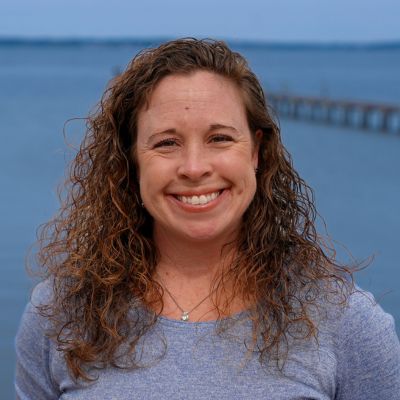Whether it’s hands-on in a classroom, on an informational cruise, presenting to a community group or mentoring an intern, we are helping to develop knowledge of our coastal environment and an appreciation for the need to preserve these vital habitats.
Education Programs
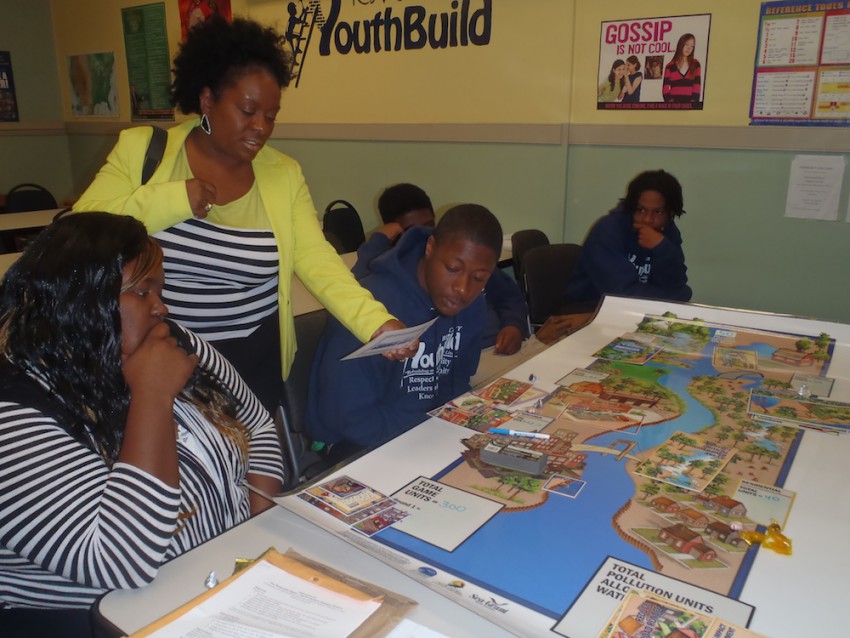
Making Environmental Education Accessible
The Coastal Federation has cultivated long-standing relationships with a number of partner organizations to ensure that everyone has the chance to learn about our coast and the environment.
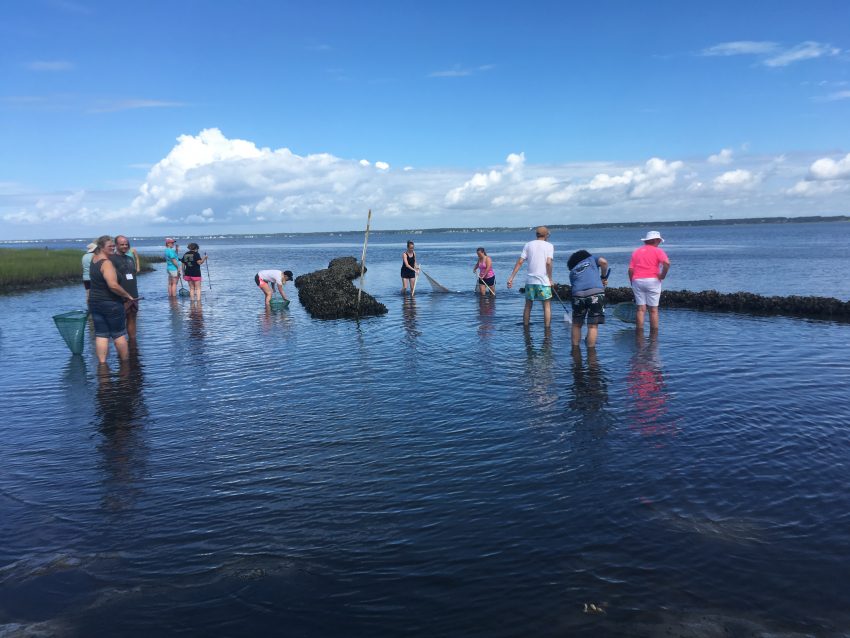
Teaching the Teachers
Our educators conduct professional development training for formal K-12 classroom teachers. Training programs serve as opportunities for enriched learning and reinforcement of crucial lessons.
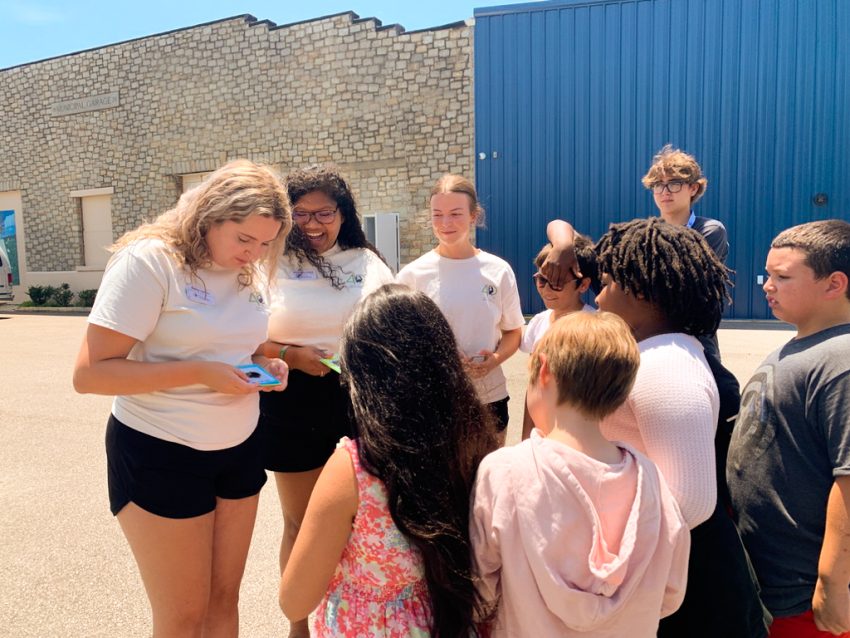
Internships
Our internships are hands-on, fully immersive programs offering real-world experience and engaging participants in projects and activities that are critical to the success of our organization.
K-12 Programs
Our hands-on classroom programs are designed to support your school district’s science curriculum. Whether you’re studying coastal habitats, water quality, or wildlife, our presentations will enrich learning and inspire stewardship.
Living Shorelines
Students and volunteers help us build and monitor living shorelines up and down the coast. These projects allow students to connect with nature while participating in hands-on restoration efforts. Groups learn about why living shorelines are important as well as what types of creatures call them home.
Living Shorelines 101
Living shorelines are a method used to protect estuarine shores from erosion. Unlike traditional techniques like bulkheads, living shorelines use natural elements like oyster shells or native marsh grasses. These natural elements work to stabilize the shore and provide critical habitat at the same time. Other materials used in living shorelines may include limestone, rip rap, or constructed oyster domes.
Classrooms to Marshes
The Coastal Federation educates students about living shorelines through interactive lessons both in the classroom and along local shorelines. High school and college students help by bagging recycled oyster shells, building reefs, planting marsh grasses, and monitoring living shoreline projects. Middle and Elementary school students also help to plant marsh grasses.
The Federation works with numerous schools on living shoreline projects. The classroom and field activities are correlated to the N.C. Standard Course of Study objectives to help teachers integrate the program into their courses.
For More Information
Visit our Distance Learning Lab to find more educational resources on living shorelines.
Reducing Stormwater Runoff Pollution
The Coastal Federation works with students to help reduce the amount of polluted stormwater runoff entering our coastal waters. By teaming up with schools all along the coast, we have designed, built, planted, and maintained rain gardens on their campuses and in their communities when funding and availability allow. Students learn why stormwater runoff is the number one source of pollution along the coast and to implement solutions to decrease this damage. It also helps students to connect to their “ecological address,” which creek’s watershed they live in. This helps to build a sense of stewardship and leads to a change in behavior that improves the water quality of the coast.
Stormwater 101
When rain falls on hard surfaces such as parking lots, roads, and rooftops, it’s not absorbed into the ground. Instead, this stormwater runoff — along with water from sprinklers and home car washes — collects pollutants such as pet waste, auto fluids, sediment, fertilizers, and pesticides and flows into our creeks, rivers, and sounds. This brew of chemicals, nutrients, and sediment can lead to fish kills, closed swimming and shellfish harvest areas, and buried oyster reefs.
Classrooms to Creeks
- Our educators visit schools and conduct hands-on lessons on stormwater using Enviroscape watershed models and interactive activities. The Enviroscape model shows how runoff picks up pollutants as it moves through a watershed.
- The Federation has developed classroom lessons for teachers focused on stormwater runoff pollution and solutions.
- Based out of the Fred and Alice Stanback Coastal Education Center in Wrightsville Beach, the Federation has also developed an interactive education program focused on several stormwater reduction projects at the education center and built around the walking “loop” in town. Schools and organized groups are welcome to come to the center to participate in stormwater education activities. Visit the “Walk the Loop for Clean Water” project website to learn more, or stop by the Wrightsville Beach office, pick up a brochure, and walk the loop to see the progress made in reducing stormwater! Contact Bonnie Mitchell, coastal education coordinator in the Federation’s southeast office, for more information.
- The Federation hosts volunteer events throughout the year to build and maintain stormwater reduction projects. Sign up to be a volunteer to learn about and participate in these stewardship activities.
For More Information
Check out our Distance Learning Lab for more educational resources on how to keep our coastal waterways clean.
School Rain Gardens
What’s all the fuss about a little rain?
When rain falls on hard surfaces such as parking lots, roads, and rooftops it is not absorbed into the ground. Instead, this “stormwater runoff” along with water from sprinklers and home car washes collects pollutants such as pet waste, auto fluids, sediment, fertilizers, and pesticides and flows into our creeks, rivers, and sounds. This brew of chemicals, nutrients, and sediment can lead to fish kills, closed swimming and shellfish harvest areas, and buried oyster beds.
A Solution to Pollution
An easy way to prevent stormwater runoff is to enable water to soak into the ground. Soil and plants will filter out pollutants, and the water can recharge our groundwater and feed our streams and wetlands. Rain gardens are one of many low-impact development tools that can reduce the stormwater runoff entering our coastal waters. The Federation works with schools along the coast to install rain gardens that are designed to catch and infiltrate stormwater runoff before it can pollute coastal waters.
School Yard Rain Gardens: Living Classrooms
Rain gardens are constructed in shallow depressions containing native plants and mulch. They work the way nature does. They capture stormwater runoff so it can soak into the ground.
The Federation is teaming up with schools all along the northeast, central and southeast coast to design, build, plant, and maintain rain gardens on their campuses. Besides the benefit to the local creeks, the rain gardens serve as living classrooms. Federation educators work with teachers to engage the students in classroom activities focused on the water cycle, plants, soil, and stormwater. Then the students work with parents, community volunteers, federation staff, and project partners to install mulch and native shrubs, flowers, grasses, and trees in the rain garden. Throughout the school year, the teachers and students use the rain gardens for lessons and activities, and they work with community volunteers to care for them.
Rain Gardens Help Our Environment and Schools
Students…
- Participate in outdoor learning
- Work with the community
- Connect with the environment
Rain gardens…
- Reduce polluted stormwater runoff
- Provide habitat for wildlife, insects and birds
- Reduce flooding
Making the Connection
It is important to know your ecological address and a big part of that is making the connection to your local creek. We all live in an area or watershed that drains to a nearby water body. The water quality of your creek is affected by the amount of polluted stormwater that flows from the watershed into it. Knowing the connection to your local creek enables you to help care for it.
For More Information
- View rain garden lesson plans.
- Check out the “Clean Water” section of our Distance Learning Lab to find educational videos and activities on rain gardens and other stormwater solutions.
Teaching Students with Oysters
Most folks enjoy eating oysters — but students working with the Coastal Federation also learn about why oysters are so valuable to the environment. The Federation’s multifaceted Oyster Education Program connects students to the coast using the oyster in the classroom and in the field. The classroom and field activities are correlated to the North Carolina Standard Course of Study objectives for K-12 to help teachers integrate the program into their courses. Federation educators work with schools coastwide through the program.
Oyster education extends beyond the classroom and includes different involvement from each educator, but all discuss the importance of oysters when bringing groups out to the field to work on living shoreline projects or oyster reef construction. Oyster-related programming includes service learning through oyster shell bagging and reef construction events, oyster dissections, plankton labs, and scientific monitoring.
Students involved with the Oyster Education Program:
- Gain knowledge and awareness about the importance of oysters
- Create and strengthen their connection to the coastal environment
- Practice environmental stewardship skills
- Have a fun learning experience
The Incredible Oyster
Why the oyster? Oysters are top-notch water filters, improving water quality by removing sediment, nutrients, and plankton from the water as they feed. One adult oyster can filter up to 50 gallons of water a day. Oyster reefs provide critical habitats for a diverse collection of aquatic animals, including many important commercial and recreational fish species. Oysters also are an important link in the estuarine food chain, and they are an important recreational and commercial fishery. Read more about our oyster habitat restoration program.
For More Information
Look in the oyster section of our Distance Learning Lab for educational videos and activities on oysters.
For more information contact one of our educational coordinators: Southeast: Bonnie Mitchell; Central: Rachel Bisesi; Northeast: Sara Hallas
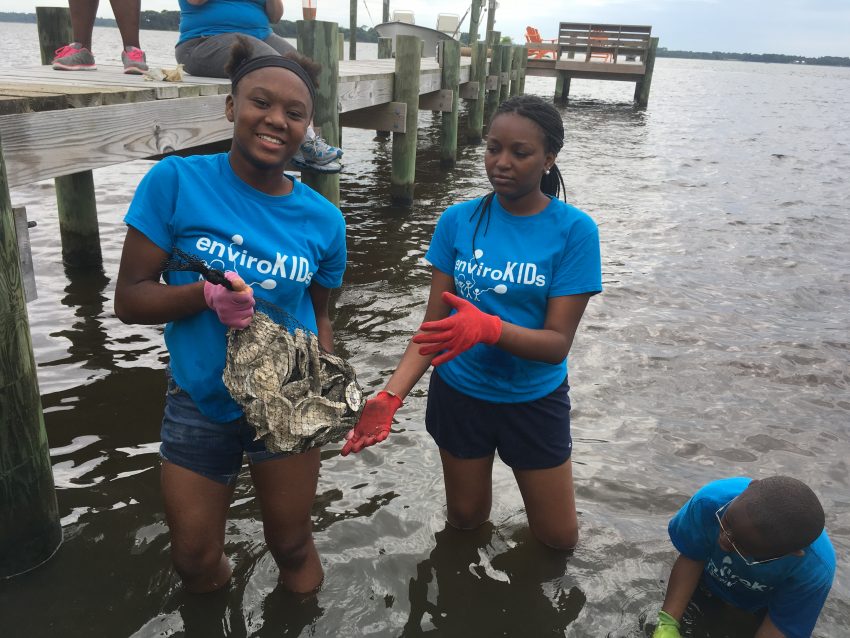
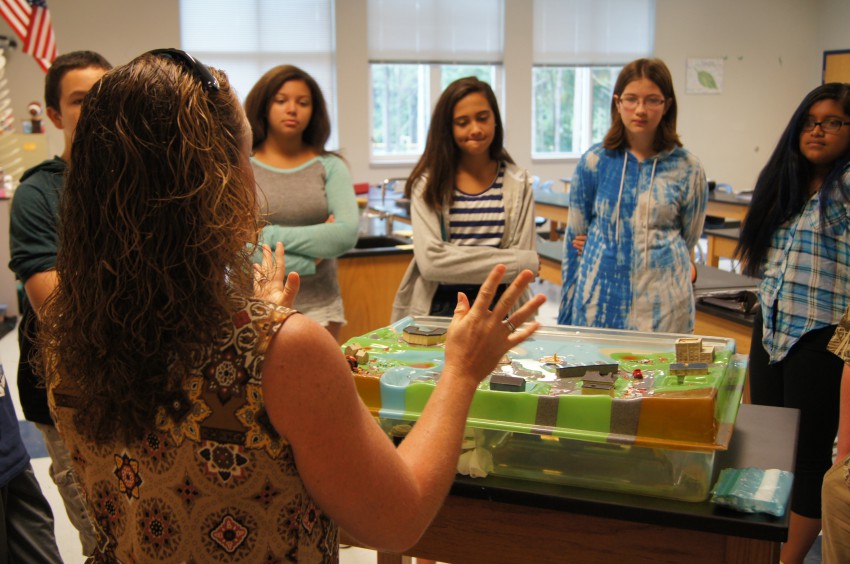
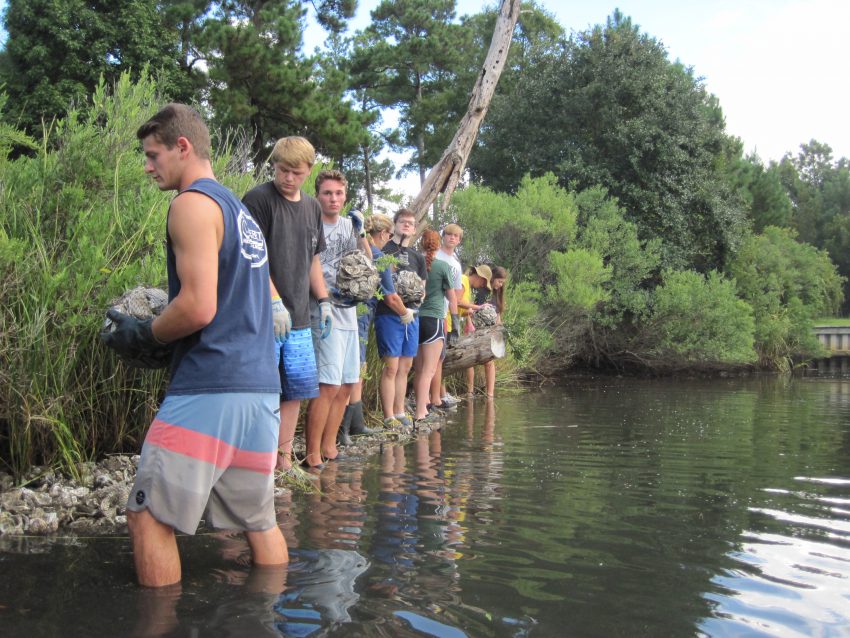
Service Projects
The Federation welcomes many high school students and college groups each year
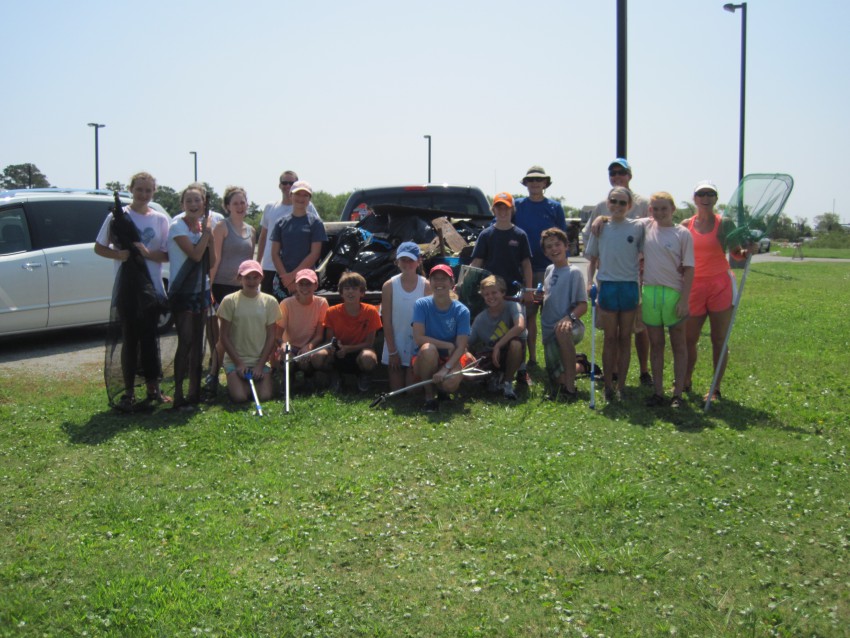
They help us with our restoration, education, and other projects and we help them with community service credits, senior projects, and alternative spring breaks. The net result makes the coast a better place.
Alternative spring break groups often help plant marsh grass, participate in cleanups, bag oyster shells, or monitor restoration sites. Contact an educator to find out what’s open now.
For more information: Southeast: Bonnie Mitchell; Central: Rachel Bisesi; Northeast: Sara Hallas
Earthwise Farm
The small community farm started by the Federation was dedicated to helping people learn how to grow food while protecting the coastal waters.
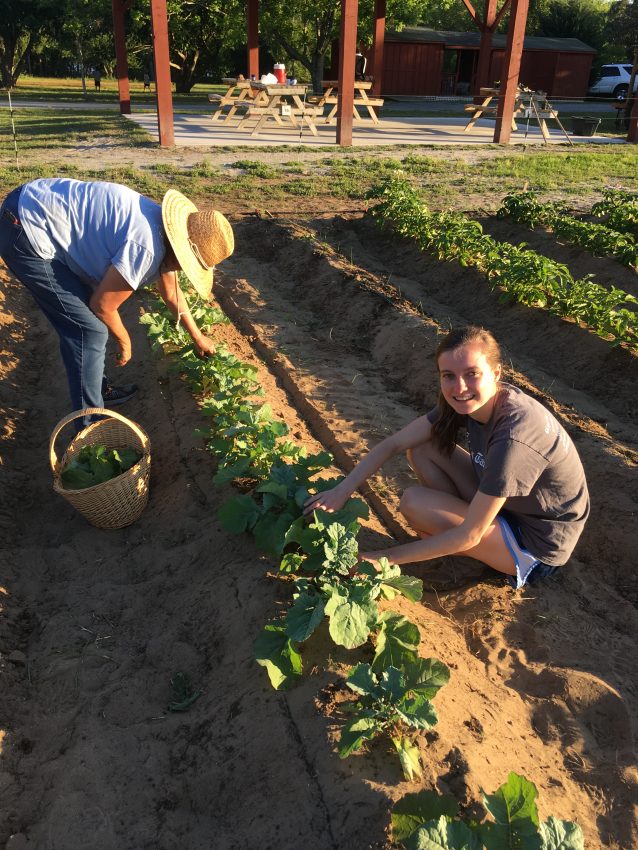
EarthWise, as it’s called, started with a seed — first planted in the imagination of an old man and then in the soil by his children.
The Coastal Federation’s small community farm, which then sprouted, is at the end of a dirt road, near Bogue Sound in Carteret County. People came down the road weekly to work the soil, hoe the weeds, and collect the harvest, a wide variety of veggies and melons that everyone shares equally. Though the volunteers enjoy their buckets full of produce, the people will tell you there’s something more going on that brings them back to help.
Read More:
To learn more, please contact Rachel Bisesi, Earthwise Farm is not open at this time.
Education Beyond the Schools
Each year, we host several workshops, summits, or training geared toward adults.
Many of these workshops focus on better educating the community about coastal resources and how to protect them. Some are geared toward community members, while others offer specific information and training useful to engineers, contractors, land surveyors, and other professions. Each summer, the Fred and Alice Stanback Coastal Education Center hosts a speaker series, and in the past, Coastal Review has hosted a training session for journalists covering coastal issues.
The Coastal Classroom
You can inspire the next generation of coastal leaders.

